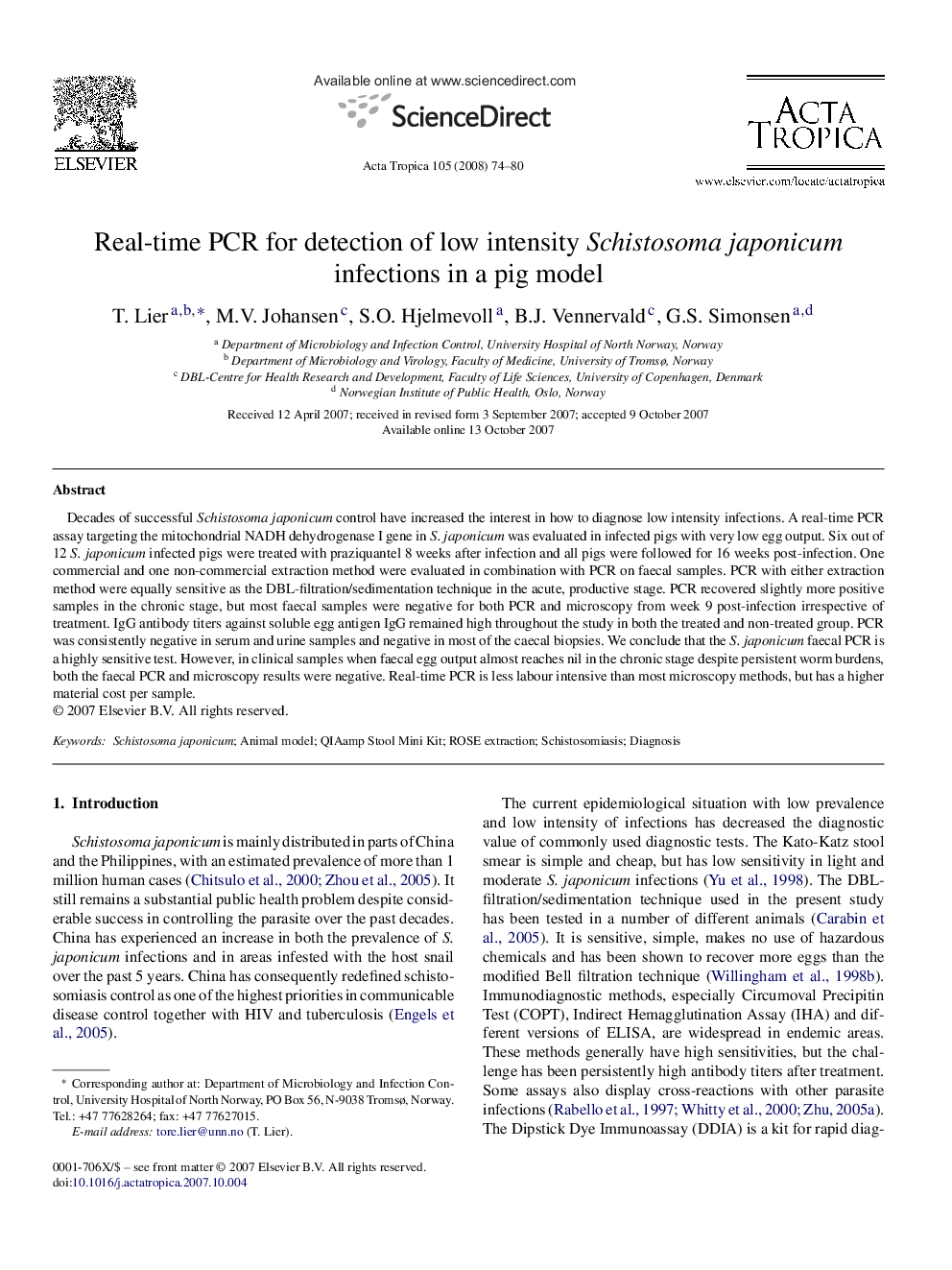| Article ID | Journal | Published Year | Pages | File Type |
|---|---|---|---|---|
| 3394677 | Acta Tropica | 2008 | 7 Pages |
Decades of successful Schistosoma japonicum control have increased the interest in how to diagnose low intensity infections. A real-time PCR assay targeting the mitochondrial NADH dehydrogenase I gene in S. japonicum was evaluated in infected pigs with very low egg output. Six out of 12 S. japonicum infected pigs were treated with praziquantel 8 weeks after infection and all pigs were followed for 16 weeks post-infection. One commercial and one non-commercial extraction method were evaluated in combination with PCR on faecal samples. PCR with either extraction method were equally sensitive as the DBL-filtration/sedimentation technique in the acute, productive stage. PCR recovered slightly more positive samples in the chronic stage, but most faecal samples were negative for both PCR and microscopy from week 9 post-infection irrespective of treatment. IgG antibody titers against soluble egg antigen IgG remained high throughout the study in both the treated and non-treated group. PCR was consistently negative in serum and urine samples and negative in most of the caecal biopsies. We conclude that the S. japonicum faecal PCR is a highly sensitive test. However, in clinical samples when faecal egg output almost reaches nil in the chronic stage despite persistent worm burdens, both the faecal PCR and microscopy results were negative. Real-time PCR is less labour intensive than most microscopy methods, but has a higher material cost per sample.
